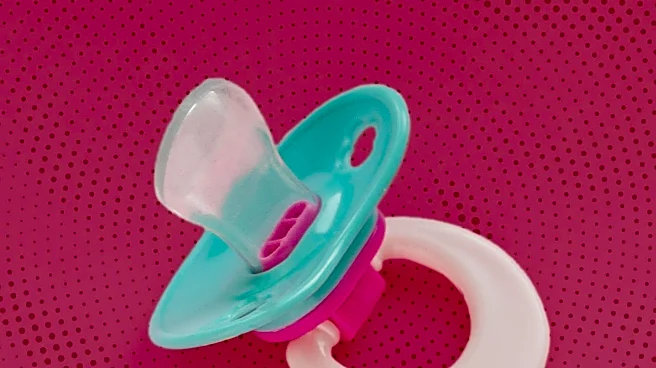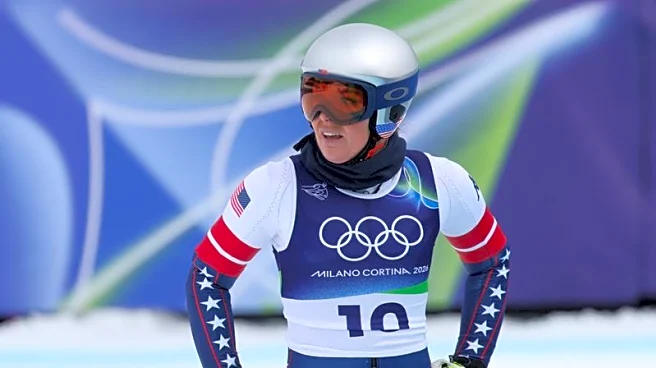What's Happening?
A recent study by the Czech consumer organization dTest has revealed the presence of bisphenol A (BPA), a chemical linked to cancer and other health issues, in baby pacifiers from three major European
brands. The brands include Philips from the Netherlands, Curaprox from Switzerland, and Sophie la Girafe from France. Despite being marketed as 'BPA-free' or made from 'natural rubber,' these products were found to contain BPA, raising questions about the accuracy of product labeling. The study involved testing 19 pacifiers purchased from stores in the Czech Republic, Slovenia, and Hungary, as well as two bought online. The tests simulated conditions inside an infant's mouth to detect bisphenols. The highest BPA level was found in a Curaprox model, exceeding the European Union's limit. Curaprox has since withdrawn the affected pacifiers, while Sophie la Girafe and Philips have disputed the findings, citing compliance with safety standards.
Why It's Important?
The discovery of BPA in products labeled as 'BPA-free' highlights significant concerns about consumer safety and product labeling reliability. BPA is known to mimic estrogen, potentially disrupting hormonal processes and leading to various health issues, including cancer, obesity, and developmental disorders. Infants and children are particularly vulnerable to these effects due to their developing bodies. This revelation could lead to increased scrutiny of product safety standards and labeling practices, potentially impacting consumer trust and regulatory policies. Companies involved may face reputational damage and financial repercussions if they fail to address these safety concerns adequately.
What's Next?
In response to the findings, Curaprox has taken immediate action by withdrawing the affected pacifiers and offering refunds. However, Sophie la Girafe and Philips have defended their products, citing compliance with existing safety standards. This situation may prompt further investigations and regulatory reviews to ensure consumer safety and accurate labeling. The European Union may also consider revising its regulations on BPA in infant products to prevent similar issues in the future. Consumer advocacy groups and health organizations are likely to push for stricter enforcement of safety standards and transparency in product labeling.
Beyond the Headlines
The presence of BPA in baby products raises broader ethical and legal questions about corporate responsibility and consumer protection. Companies are expected to ensure the safety of their products, especially those intended for vulnerable populations like infants. This incident could lead to increased public awareness and demand for safer, more transparent products. It may also encourage innovation in developing alternative materials that do not pose health risks. Long-term, this could shift industry standards and consumer expectations, emphasizing the importance of rigorous testing and honest marketing practices.











